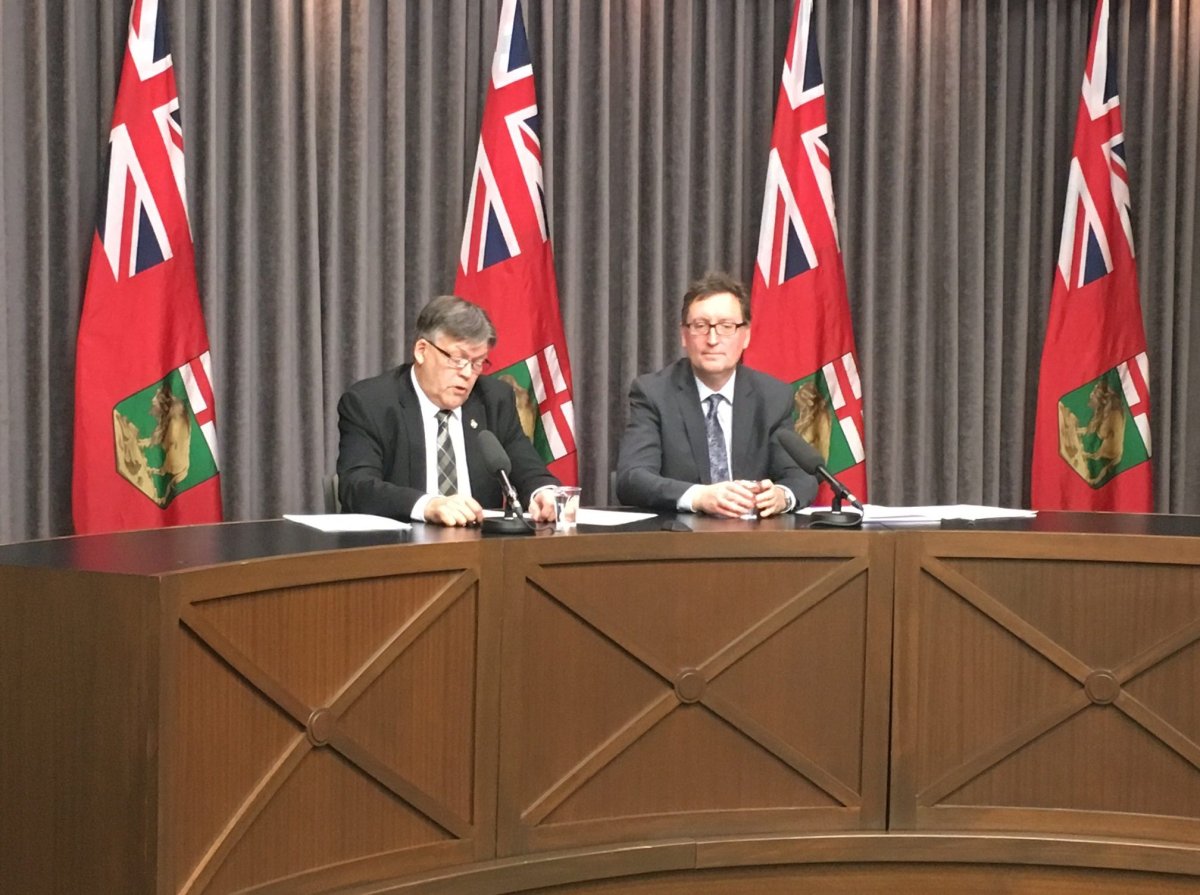The Manitoba education minister is directing public school divisions to tighten their belts.

In a funding announcement Thursday, Education and Training Minster Ian Wishart said his government is ‘directing’ school boards to limit education property tax increases to two per cent.
“It’s a strong encouragement for them to be fiscally responsible and pay attention to the needs of the rate payer,” Wishart said. “I would remind you they are facing an election year as well.”
School boards also learned today what funding increase they will receive. The province said it will invest $1.323 billion in public schools for the 2018-19 school year, an increase of $6.6 million.
RELATED: Winnipeg School Division warns of cuts after education funding announcement
The conservatives also want to reduce the number of teacher bargaining units.
Wishart said Manitoba is the lone province permitting exclusive bargaining for teachers. This amounts to a “replication of process” in which 38 separate units hammer out similar agreements.
The province aims to move to a streamlined “central bargaining process which will create efficiencies and greater consistency,” Wishart said.
The change is timed to coincide with the expiration of teacher contracts June 30.
RELATED: French-language education at risk: Partners for Education
Manitoba teachers are not happy with the announcement.
“This makes it clear that our students are an afterthought in this announcement – and that’s a slap in the face for all our members who work hard every day to help students reach their full potential,” Norm Gould, president of the Manitoba Teaches Society said.
MTS issued a statement immediately following Wishart’s announcement at the legislature. “An MTS public poll conducted just weeks ago showed that fully 93% of Manitobans think the Manitoba government should increase public schools funding or at least maintain the current level of support,” the statement read.
“Teachers are facing large increases in student enrolment, a growing influx of refugee and newcomer students, chronic – and I mean chronic – child poverty and more special needs kids than ever, and this is what government thinks our students are worth?” Gould said.
-with files from Christian Aumell









Comments